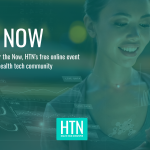
Sympathetic correction of misinformation among vaccine-hesitant patients can significantly improve attitudes towards vaccination – and potentially boost vaccine uptake, new research led by the University of Bristol has found.
The study also found this new style of communication could help build and maintain a positive relationship with health professionals, increasing trust and public confidence.
With the UK currently facing a growing measles outbreak, fuelled by declining rates of the Measles, Mumps and Rubella (MMR) vaccination, the results are timely and present important learnings for vaccine delivery programmes.
Its research found the more than two-thirds (around 69 per cent) of vaccine-hesitant study participants who received empathetic engagement from a healthcare professional preferred this compared with a group who were just told the facts.
Lead author Dr Dawn Holford is Senior Research Associate in Psychology at the University of Bristol.
She said: “Although we expected people to generally respond more positively to an empathetic approach, it was surprising how much greater the preference for this style of communication was among those who expressed concerns about vaccination.
“The study highlights how the way misinformation is tackled, especially with vaccine averse groups, can play a vital role in changing perceptions which can be hard to shift.”
The research, which involved more than 2,500 participants in the UK and US, compared their response to direct, factual communication with a novel dialogue-based technique empathising with their views, while also addressing false or misleading anti-vaccination arguments.
The results showed that participants overall preferred the new approach, known as empathetic refutational interviewing – and this was response was strongest for the vaccine-hesitant, who found it more compelling than being presented purely with facts.
The majority of participants (around 64 per cent) who experienced the empathetic refutational interview also indicated they were more open to continuing the conversation with a healthcare professional, and around 12 per cent became more willing to be vaccinated compared to those participants who received the factual approach.
Dr Holford said: “The findings actively demonstrate the power of communication, which healthcare professionals can use in their daily roles.
“Our study shows it is possible to gain trust and change minds if we take people’s concerns seriously and tailor our approach to help them make informed decisions about their health.
“This is hugely encouraging, especially with the growing influence of misinformation and fake news worldwide.”
The research is currently being developed into training tools and programmes to support healthcare professionals in the UK, France, Germany and Romania.
During the coronavirus pandemic, misinformation about vaccines fuelled vaccine hesitancy especially among vulnerable groups.
In the wake of the pandemic, reduced uptake of various vaccines remains a significant public health concern.
The UK Health Security Agency (UKHSA) recently declared a national incident due to a growing outbreak of measles – one of the most contagious viruses – with extra clinics and vaccine buses targeting communities with low vaccination rates.
Uptake of the MMR vaccine has fallen worldwide in the wake of the pandemic.
A recent study by the World Health Organization found the global decline in childhood vaccinations, to protect against devastating but preventable diseases, was the largest sustained drop in around 30 years.
Co-author Stephan Lewandowsky, Chair in Cognitive Psychology at the University of Bristol, has led numerous studies demonstrating the influence of misinformation.
During the pandemic, he developed an online guide addressing and correcting the proliferation of misleading myths surrounding COVID-19 vaccines.
Professor Lewandowsky added: “It is important to understand the motivations underlying people’s vaccine hesitancy so we can correct misconceptions without confronting people’s deeply held attitudes head-on.
“By affirming and empathising with those deeply held attitudes we create a space where people are sufficiently comfortable to process corrective information, so they can make a better informed decision.”





